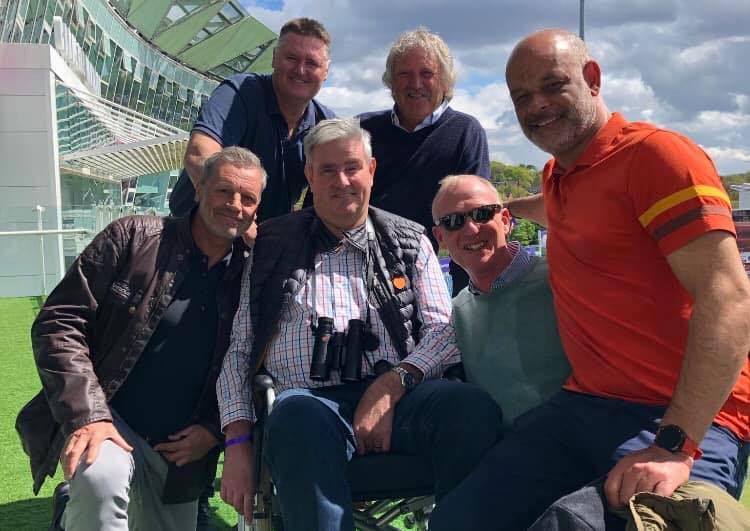The Kent cricketing community was left reeling last week following the death of Alan Igglesden, and in tribute KSN have been talking to the players who knew “Iggy” starting here with the thoughts of Martin McCague.

When we spoke to the former England fast bowler, he was still shaken. “It’s always tough to lose a close friend – a great guy who I played a lot of cricket with down the years,” he said.
“We continued the friendship after we finished playing and he battled really, really hard over the years (since his stroke) – it was twenty odd years you know, and he never moaned once!”
“He just got on with his life with no hard luck stories – he just took it and the cards that he dealt weren’t great, and he played a “great innings” and it’s so sad to see him go!”
After spending twelve successful seasons at Canterbury where he took over seven hundred wickets and represented England in Tests and One Day Internationals, he finished his career playing with Berkshire and it was then when he was diagnosed with a malignant but inoperable brain tumour in 1999, and in the last three years, he suffered two strokes before his death last week.
The truth of his illness only became public knowledge when the Professional Cricketers Trust released a very personal video which took many people by surprise at just how ill he was, causing a massive outpouring of support from all over the country – support that has again been present since his death.
“The level of public support didn’t surprise me at all,” McCague admitted.
“He always played with a smile on his face – when kids came up to you after a game and ask for an autograph, he was one of the first people that said to me, “Stay out here, stay out here!” We’d both stay signing as many as we could for everyone and he’d often stay out there until the very last one was signed, and the reason he did that, was that people wouldn’t remember him as a player one day.”
“But every one of those he signed for sure will remember him for doing it – he was very approachable. It was something he did; he recognised that the youngsters who play the game tomorrow need to be approachable to the cricketers of today. He warmed to a lot of people for the effort he put in both on and off the field.”
“I think on the field he was quite highly rated as a bowler – he probably should have played more than the four times he did for England.”
“Unfortunately, one of the things that go along with fast bowlers – and I speak from experience – is injuries and sadly he got more than some along the way.”
“The thing about them is that they are all short-term setbacks and you’ve got to try and prove yourself again. You’ve got to prove that you can stay on the park because you’re not going to play in Test matches if you keep breaking down as they can’t afford to have a bowler keep breaking down – it was unfortunate, but he played a lot more cricket for Kent than he probably wanted to, as he probably deserved to play a lot more cricket for England.”
“That said, we didn’t open the bowling for Kent as often as you might think,” McCague remembered.
“Someone showed me some stats once about games that we won when we bowled together… and it was very high! In the games where we didn’t bowl together when one of us was injured, we didn’t win anywhere near as many!”
“We suited each other because he was tall and upright and swung the ball at pace away whereas I tried to terrorise people at the other end! He had a bit more guile about him definitely – we worked well together.”
“He didn’t say a lot – he just got on and bowled. He didn’t have to say much; he just got the ball to do the talking for him and he just played with a smile.”
“If someone played and missed, he’d just smile at them – he didn’t say anything to them – he was a loveable character, and it’s interesting to see from social media since he passed away just how many people from other counties have said what a really good bloke he was.”
“At the end of a day’s play, he’d always have a beer with them and have chat with them, he was that sort of bloke. He toured with other players from other counties with England and I know he made some great friends, and he was well regarded across the whole circuit.”
“He was great with the youngsters at the county which is probably why he went onto have a coaching career at Sutton Valence School, because they could see what he would bring to the party, and he would always send people from the school – Robbie Joseph who finished up at Kent; he coached Richie Richardson’s son at the school. He was very good at giving players forward to the County as he recognised their talent.”
We ended our reminisce by asking McCague for his abiding memory of his friend.
“It was just his smile,” he said.
“He was just such a warm character, and he never had a bad word against anyone – everyone warmed to him, and he didn’t say much about his twenty years (since his stroke) and I’m sure he looked back and said that he had a good life and we’re all desperately sad to lose him!”





